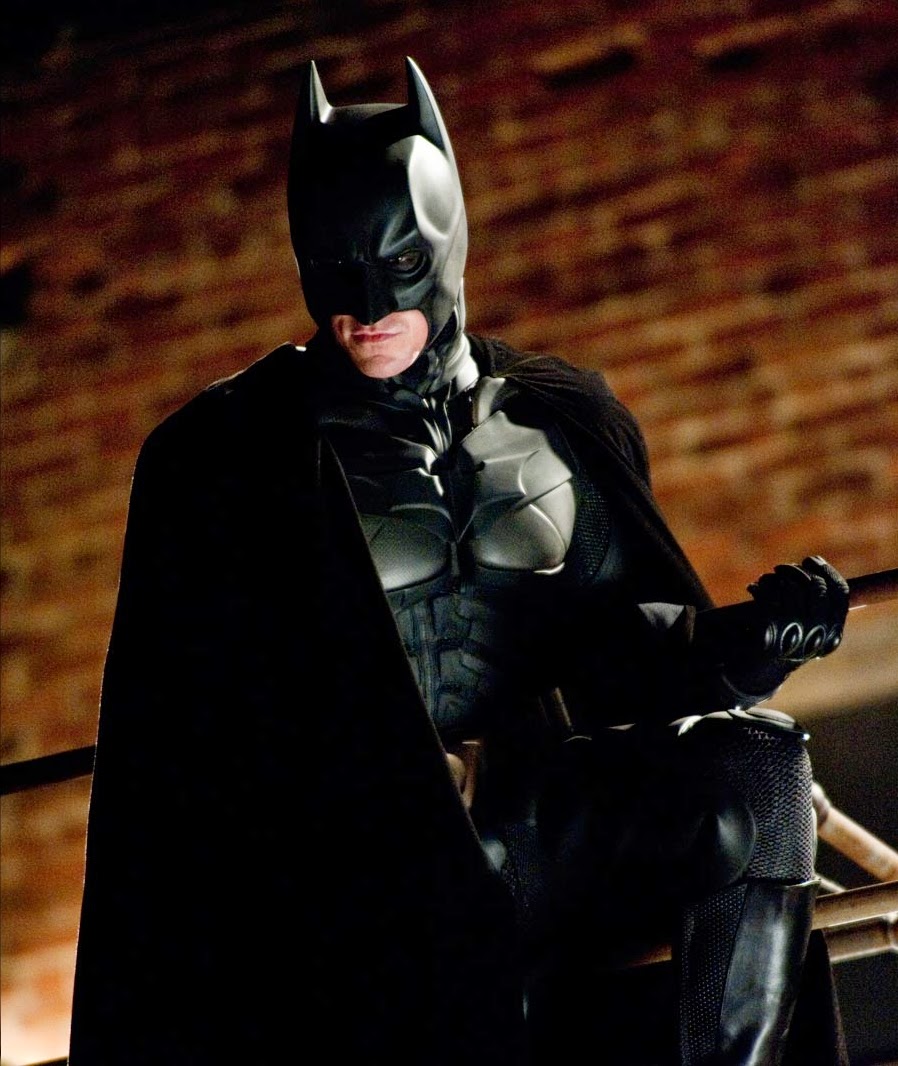Our world is broken.
America is broken. We all know
that; but what we don’t know is how to build a better world. Many of us seek to do so, but we often don’t
know where to start and, more importantly, we don’t really know for what we are
striving… but there are two men who knew both of those things – two men from
whom we can learn many important lessons.
I’ve noticed a lot in common between my two favorite superheroes – which
may explain why they are my favorite superheroes. Their appearance and tactics contrast sharply
with one another, but both overcame difficulty, then returned seeking truth, justice
and liberty as they faced subtle, infiltrating enemies. Both films feature epic, mind-blowing combat
scenes, battles, and explosions, high-speed car chases and, ultimately, the
good emerging triumphant. One man
suffered tragedy in his childhood and grew up blaming himself for the death of
his parents and torn apart by a thirst for revenge. Throughout his youth, the other was a target
for bullies due to his small size. The
first conquered his fear and turned his own terror against his enemies. The large, courageous heart of the other
allowed him to overcome physical weakness.
One donned an alter-ego—something elemental, something terrifying. The bright colors and bold stars and stripes
of the other made him a national icon.
Billionaire Bruce Wayne returned to Gotham after a long absence to save
his home city from poverty, corruption, and death. Underdog Steve Rogers became a hero during
World War II when he was selected to receive superhuman strength through a
chemical injection, then returned from the dead, as it were, to save 21st-century
America from the same subtle political villain (albeit a fictional one) that
terrorized the world in the 1940s.

 I am not familiar with the comics behind these movies; my
ideas focus on the character and motives of our main protagonist and antagonist
in Batman Begins and the more recent
release, Captain America: The Winter
Soldier. As we consider the antagonists,
you’ll notice a common thread: they seem to
aspire to the greatest good for the greatest amount of people, but seek to do
it through death and destruction.
I am not familiar with the comics behind these movies; my
ideas focus on the character and motives of our main protagonist and antagonist
in Batman Begins and the more recent
release, Captain America: The Winter
Soldier. As we consider the antagonists,
you’ll notice a common thread: they seem to
aspire to the greatest good for the greatest amount of people, but seek to do
it through death and destruction. In Batman Begins, the enemy is very subtle. After witnessing his parents’ murder, Bruce Wayne relocates to Asia, where he is trained by the mysterious ninja cult leader known as Rah’s al Guhl. When Wayne defeats his trainer in an exercise, Al Guhl is ready to initiate him into the League of Shadows, but the League’s real objective is to destroy Gotham completely and start over.
In The Winter Soldier, Alexander Pierce is head of the World Security Council, and a senior leader within SHIELD. In essence, Pierce is Steve Rogers’ boss. As he is explaining portions of SHIELD’s “mission” to Rogers, he says:
“To build a better world sometimes means tearing the old one down, and that makes enemies.”
 At first, this sounds promising: wipe the slate clean and
start over! But think about all the good
people who would have to be destroyed along with the corrupt. It is revealed that Alexander Pierce is the
leader of the HYDRA cell operating within SHIELD (HYDRA, in case you don’t
know, was the Nazi-esque organization defeated in Captain America: The First Avenger). Pierce masterminds Project Insight, the
development of three new Helicarriers designed to carry out a mass assassination
of all citizens recognized as a threat to HYDRA’s agenda of world
domination.
At first, this sounds promising: wipe the slate clean and
start over! But think about all the good
people who would have to be destroyed along with the corrupt. It is revealed that Alexander Pierce is the
leader of the HYDRA cell operating within SHIELD (HYDRA, in case you don’t
know, was the Nazi-esque organization defeated in Captain America: The First Avenger). Pierce masterminds Project Insight, the
development of three new Helicarriers designed to carry out a mass assassination
of all citizens recognized as a threat to HYDRA’s agenda of world
domination.  What do we do with these two villains? When related to modern America, the essential
idea presented is that we ought to put the past behind us, give up on trying to
tweak and mend our current problems, and start all over.
What do we do with these two villains? When related to modern America, the essential
idea presented is that we ought to put the past behind us, give up on trying to
tweak and mend our current problems, and start all over.
Bruce Wayne refused to join the League of Shadows; he returned
to Gotham on his own and went undercover to fight crime as Batman. The League had given up on Gotham, but Wayne
saw hope for restoring it. When Steve
Rogers realized that the biggest threat was right under his nose, he put everything
on the line to guard lives and liberty.
This line, repeated often throughout Batman Begins, has powerful implications for us, both as individuals and as a nation. Yes, our nation is suffering; yes, we are seeing sad and tragic episodes of moral deterioration; yes, America has stumbled. But we shouldn’t give up. Our failures allow us to learn and grow and eventually come back stronger. We did it in 1980 with the Reagan Revolution. We can do it again now, and in 2016.
“Why do we fall? So that we can learn to pick ourselves up.”
This line, repeated often throughout Batman Begins, has powerful implications for us, both as individuals and as a nation. Yes, our nation is suffering; yes, we are seeing sad and tragic episodes of moral deterioration; yes, America has stumbled. But we shouldn’t give up. Our failures allow us to learn and grow and eventually come back stronger. We did it in 1980 with the Reagan Revolution. We can do it again now, and in 2016.




